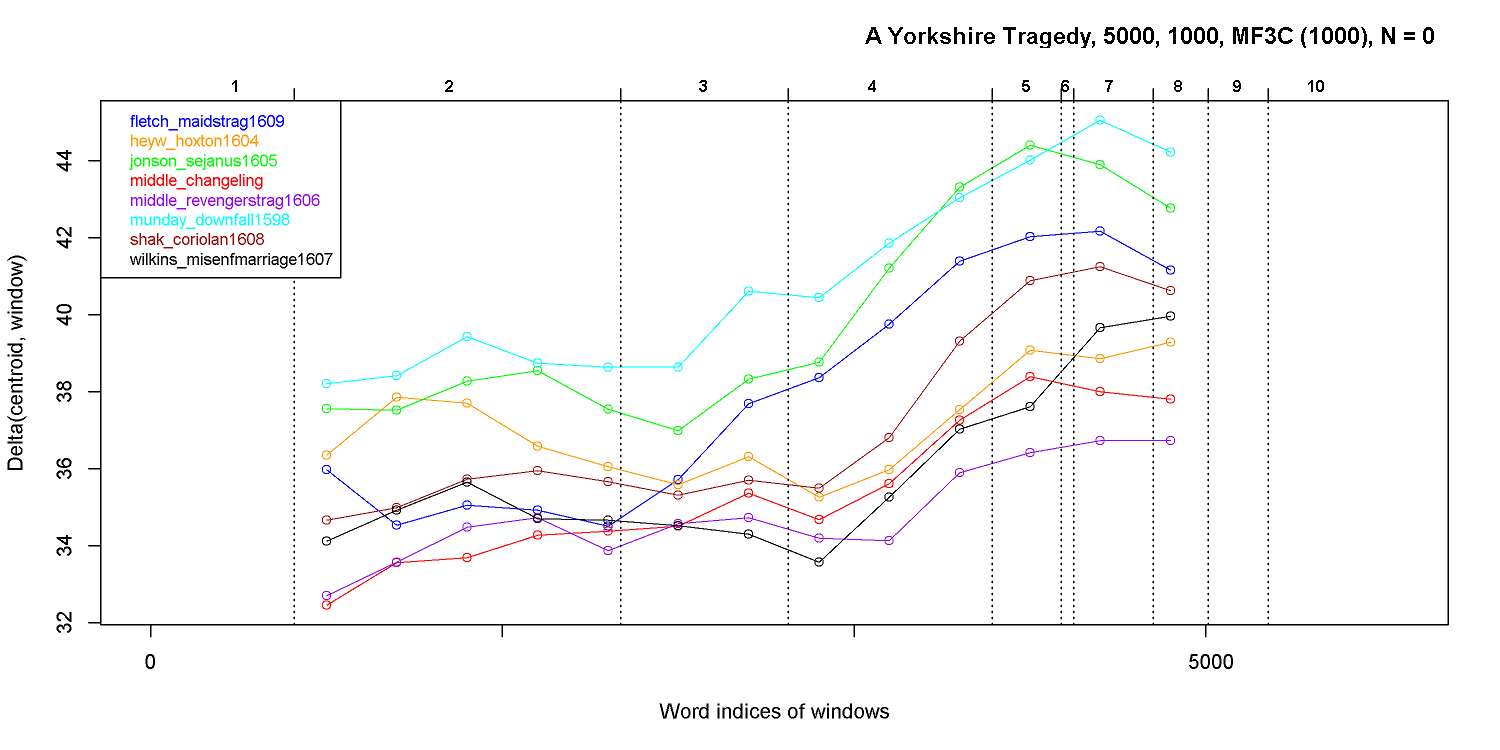 auf deutsch
auf deutsch
Rolling delta is one function of the stylometric programme R Stylo and is immensely valuable in approaching authorship questions or collaborations. The delta values of the text in question are compared to those of suitable reference texts. The lowest value indicates the smallest difference in style. Introduced by Burrows in 2002 rolling delta examines a window of a certain size, determines the delta values and then moves to the next window according to a chosen step size. As it goes through the complete text step by step the lowest values create a curve that belongs to one or several reference texts and in this way gives the author of, or collaborators in the text. The results depend on the window size, the variables (words or character n-grams) and the number of variables. The culling value of 0 evaluates up to a thousand variables, N = 100 uses only those which are present in all files.
Each chart gives the name of the play, the window size, the step size, the type of the most frequent variables (here words = MF1W and character trigrams = MF3C). The culling value is also mentioned. It should be noted that MF3C accounts for more text than MF1W and, due to the larger population, is statistically more sound. As A Yorkshire Tragedy is only 5912 words long it was artificially lengthened by trebling every word, and the scaling scheme was rearranged accordingly so that the effect of a magnifying glass came into existence. The last three charts rely on the normal text, however.
|
| 1 | | 2 | | 3 | | 4 | | 5 | | 6 | | 7 | | 8 | | 9 | |10 | |11 | |12 | |13 | |14 | |15 | |16 | |17 | |18 | _top_ |
 |